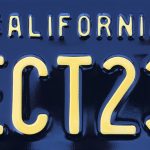
As you know, I am not a fan of the EU’s DSA. Without First Amendment guardrails in the EU, the DSA represents a comprehensive government intrusion into the editorial processes of UGC services–with surely more intrusions to come. This will…

Self-proclaimed free-speech absolutist Elon Musk is notoriously thin-skinned when it comes to criticism directed at him. (As the phrase goes, “he can dish it out, but he can’t take it“). This well-publicized lawsuit is an example of Musk waging lawfare…

More Bitcoin litigation 🙄. This time, malefactors hijacked popular YouTube channels and uploaded videos promoting Bitcoin scams: First, scammers will breach YouTube’s security to unlawfully gain access to verified and popular YouTube channels with tens or hundreds of thousands of…
As I’ve recently mentioned, ex parte proceedings are error-prone because the judge hears only one side of the story and doesn’t get enough context to spot the possible flaws. This systematic–and avoidable–risk of errors has materially contributed to the SAD…

You may recall the 2022 Buffalo mass-shooting, which was committed by a murderer responding to the “Great Replacement Theory.” (And yet, many people in the public eye keep referencing and evangelizing the theory despite its direct and repeated role in…
by Kieran McCarthy Recently, there has been a revival of anemic trespass to chattels claims in California. And so perhaps we should not be surprised that California courts have opened the door to a resurgence in anemic digital conversion claims,…

This is a Video Privacy Protection Act (VPPA) case 🙄 against the video streaming platform Tubi. Tubi sought to send the case to arbitration per its TOS. The court says no. The account signup page on mobile devices looked like…
Music publishers sued Twitter for users’ alleged copyright infringement. The court says that three aspects of the contributory copyright infringement claim survive Twitter’s motion to dismiss. Direct Copyright Infringement. The publishers argued that Twitter “transmitted” their works. The court says…

Texas passed a law (HB 1181) requiring pornographic websites to age-authenticate all users and then prevent minors from accessing online porn. If this sounds familiar, it’s because Congress passed functionally identical laws twice: the CDA in 1996 and the COPA…
